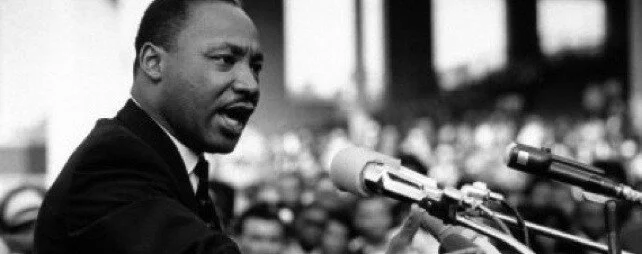This Wednesday (Sept. 4), Massachusetts’ highest court will consider the constitutionality of having students recite the Pledge of Allegiance. The practice is being challenged by an anonymous atheist couple who object to the words “under God” in the Pledge. The clamor by some people about this acknowledgement of God stems from a misunderstanding of why the phrase is so important to the American concept of government. Here are five reasons why “under God” must remain in the Pledge of Allegiance:
1. Thomas Jefferson explained why being "one Nation under God" is important. Thomas Jefferson and our other Founding Fathers understood that the government does not give us our freedom. Our freedom comes from God, and the government was established to protect that God-given freedom. That was their justification for the American Revolution as stated in the Declaration of Independence. Jefferson wrote:
"We hold these truths to be self-evident: that all men are created equal; that they are endowed by their Creator with certain unalienable rights; that among these are life, liberty, and the pursuit of happiness; that to secure these rights, governments are instituted among men, deriving their just powers from the consent of the governed; that whenever any form of government becomes destructive of these ends, it is the right of the people to alter or to abolish it, and to institute new government laying its foundation on such principles…"
No king or emperor, no president or congress, no court or crowd gives us our rights. They come from God himself and are unalienable. And the Founders built America's "foundation on such principles."
2. Abraham Lincoln explained why being "one Nation under God" is important.
Abraham Lincoln understood that the nation's unity and freedom depended upon being one nation under God. In the Gettysburg Address, Lincoln used the exact phrase, "nation, under God," echoed in the Pledge of Allegiance. He began his address by referring to the Founding Fathers' foundation in God-given rights:
"Fourscore and seven years ago our fathers brought forth upon this continent a new nation, conceived in liberty, and dedicated to the proposition that all men are created equal. Now we are in a great civil war, testing whether that nation, or any nation so conceived and so dedicated can long endure."
As Lincoln closes his remarks honoring the fallen soldiers at Gettysburg, he offered this inspiring vision:
"...that we here highly resolve that these dead shall not have died in vain; that this nation, under God, shall have a new birth of freedom, and that government of the people, by the people, and for the people, shall not perish from the earth." (emphasis added)
3. Martin Luther King, Jr. explained why being “one Nation under God” is important.
Dr. King's famous "I have a dream" speech reflects his ideals rooted in the Founders’ belief that our rights come from God. King relied on the Declaration of Independence’s reference to the Creator when he said:
"I have a dream that one day this nation will rise up and live out the true meaning of its creed: 'We hold these truths to be self-evident: that all men are created equal.'"
In every century of American history, arguably the most significant document or speech of that century references the rights of Americans being derived from our Creator: Jefferson's Declaration of Independence in the 18th century, Lincoln's Gettysburg Address in the 19th century, and Martin Luther King, Jr.'s "I have a dream" speech in the 20th century.
4. It doesn't matter that the phrase "under God" was added to the Pledge in the 1950s.
Some people argue that "under God" was not in the original Pledge and was inserted over 50 years later. But, that only proves it took over 50 years to get it right!
5. The phrase "under God" does not make the Pledge a prayer.
Some people argue that "under God" is a form of prayer, and thus it is unconstitutional to have schoolchildren recite it. However, a careful reading of the Pledge of Allegiance reveals that we are not pledging allegiance to God. We are, instead, pledging allegiance to a republic. The Pledge describes the republic as one nation under God and indivisible. In other words, it is a statement of fact. It is a fact that our Founders established our government on the proposition that freedom comes from God, not the state.
As Jefferson, Lincoln, and King attest, the American people's freedom--the freedom of your neighbors, your co-workers, your children, and their teachers, are because we are one nation under God. Take that principle away, remove it from our national consciousness, and we will lose the very basis for the freedoms we so easily take for granted.
Thomas Jefferson warned of the dire consequences of forgetting this important principle. On the Jefferson memorial his warning is carved:
"God who gave us life gave us liberty. Can the liberties of a nation be secure when we have removed a conviction that these liberties are the gift of God?
Lincoln said it well, "Now we are in a great civil war, testing whether that nation, or any nation so conceived and so dedicated can long endure."
In this war of ideas, people will not defend what they do not cherish, and they will not cherish what they do not understand.




